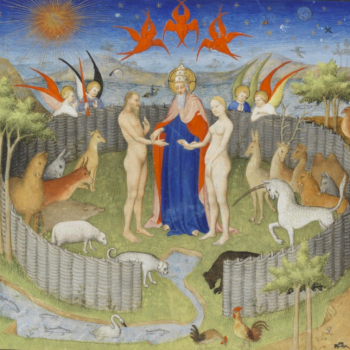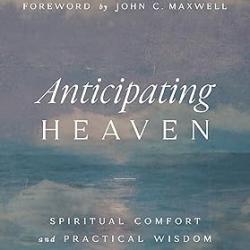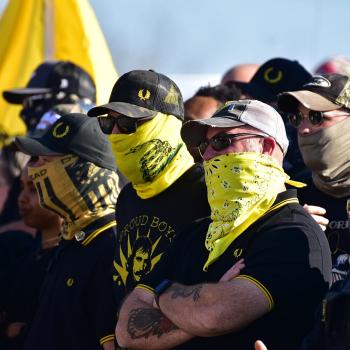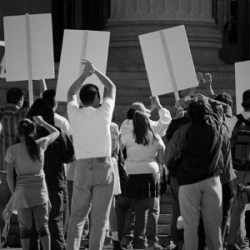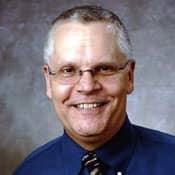And he was covered, head to foot, in ash.
Shaken, I left the hotel and walked a block east, and a couple blocks south, and then found myself a few minutes later standing in the doorway of St. Patrick's Cathedral. Morning mass was ending. The cathedral was dark and cool. I expected it might be crowded, but was surprised to find that it wasn't. I found an empty pew, and tried to collect myself.
A thousand stray thoughts wrestled for my attention. I wondered when I'd get home, when I'd see my wife, how family and friends around the country were coping. I felt restless, confused, worried—and frightened.
I got up and made my way to a row of candles at a side altar. I lit a small votive candle, crossed myself, and struggled to pray. But for what? My mind kept going back to the hotel lobby, and the ghost-like figure covered in ash, and the images that replayed again and again the day before. Help us, I prayed. Help. Us. After a moment, I left the cathedral, stepping out of the darkness into the brilliant September light. I turned north, and walked several long blocks back to CBS, and my office.
Later that day, the subways started working again, and I was able to make it home. For a few days after, there was a strange stillness to New York City that you almost never see. And there were other things—small details that served to remind you that the city had been changed. Walking up 57th Street at twilight, heading home after work, something caught my eye. It was a candle, in an apartment window. I saw more and more as I walked on—in windows, on stoops, on the sidewalk. New York isn't a city given to maudlin sentiment. But around the area, that scene was being repeated again and again, as people tried, somehow, to create makeshift memorials to those who were lost. Small candles began appearing everywhere—a way for the city to say: "There is still light. We won't let the dark take over."
And soon, too, there were pictures: photocopied images tacked to lampposts and bus stops. "Missing," they said. "Have you seen her?" "Last seen at WTC on 9/11." They papered the city in odd and unexpected places, and it was heartbreaking to see the days go by, and then the weeks, and watch the papers crumple and tatter and fade, until finally they were all gone.
Everything had shifted. The news became preoccupied with funerals, and the desperate search for the survivors who were never found. American flags appeared in windows of stores, offices, apartment buildings; tiny flag pins appeared on lapels. Things we used to ignore suddenly took on new meaning. You'd hear a roar and look up at the sky. A low flying jet coming in for a landing at LaGuardia Airport would make you stop and stare and pray that it wasn't about to happen again.
The Saturday morning after the attacks, I was running errands in my home in Queens and stopped with a jolt as I was about to cross the street. Was that what I thought it was? Yes. You could smell it. The acrid odor from the wreckage of the World Trade Center had drifted across the river, over the rest of the city, and made its way to Queens. I struck up a conversation with a woman waiting for a light. "Do you smell that?" I asked. She nodded, and then shook her head, and hurried on. She knew what I meant.
In time, of course, life went on and returned to something resembling normal—or, maybe, the "new normal," of increased security at airports and anxiety about travel and the shock, after a few months, of occasionally seeing soldiers on leave visiting the city wearing camouflage fatigues the color of sand.
***
And that was how it all began.
We all ended up being changed by September 11th. A lot of us started to realize just how fragile our world, and our lives, really are. A few people I know ended up taking early retirement, so they could do volunteer work, or travel, or spend more time with their families. I ended up thinking more deeply about my life, and what I was doing with it. I began praying more deeply, searching more intently, questioning more seriously what I would do with the rest of my life. And so it was that in the fall of 2002, after several months of discernment, I began my formation as a deacon—something I never would have imagined a year earlier.
But so much of what we knew or thought we knew on September 10th changed on September the 11th.
And, as I discovered in that hotel room, we awoke to a different world the day after.
9/11 is a strange and confusing memory. But that was then. This is now: we gaze out the window on a world where the air is clear and the sky is cloudless, and people hurry off to jobs and somewhere, in the distance, sirens call. Everything is the same but different, familiar but changed.
That's just the way is now. It's 9/12. And we begin another day.
A version of this essay appears in the September issue of REALITY magazine, published by the Redemptorists.
